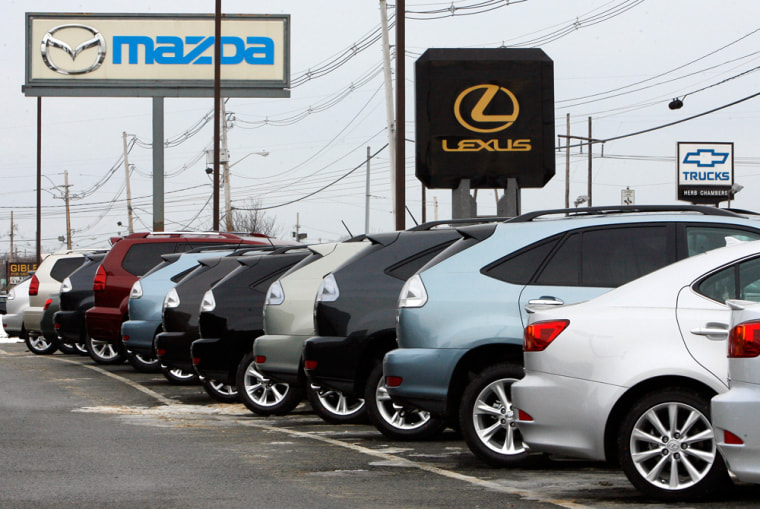For cash-strapped consumers shopping for a car, used would seem like the place to start. Not necessarily. A new one might actually be cheaper.
Consider this: The average cost of a used 2008 Honda Accord EX sedan, certified by the dealership, was $21,544 earlier this month, according to Edmunds.com, a car-buying Web site. A new 2009 model cost $80 less.
It's simple supply and demand. With new car sales at a 27-year low and desperate dealers piling on rebates and incentives, prices are plummeting. At the same time, demand is up for used cars and their values are rising.
"The intuitive logic has been that a used car buy is a better buy," said Edmunds CEO Jeremy Anwyl. "But consumers need to check reality. It's very contradictory."
Used cars still generally cost less than new ones, but a mix of drastic price cuts, rebates and financing incentives is narrowing the gap.
Automakers are subsidizing zero-percent or low-interest loans on new cars, while the average rate on a three-year used car loan is about 7.5 percent, according to Bankrate.com. Factor in the lower cost of financing and the total cost of the new car can be less.
For example, a $30,000 car with an annual percentage rate of 2.9 percent would cost $662.70 a month over four years. By comparison, a used car with an APR of 7 percent would cost $718.38, a total of $2,673 more over the same period.
Automakers like Ford Motor Co. are banking on the phenomenon to drive consumers back to new car showrooms.
"There is an equilibrium level which we believe we are getting back to between the value of used vehicles and the transactional price of new," said Ken Czubay, Ford's sales and marketing vice president, when the company announced its February sales fell 48 percent from a year earlier. "This also portends, we believe, a favorable future for the new business."
Even with the best of terms, however, the monthly payments for a new car are out of some people's reach. That's why leasing became so popular. But many auto finance companies have stopped offering that option because it became unprofitable, and where it is available it may still be out of reach to many consumers.
That's the case with Tom Kostora and his wife, Melanie. They've leased trucks for more than 10 years, but were shopping for a used car this month after turning in their fifth Ford F-150 pickup.
"I want lower payments with my mortgage and tuition for my son's private preschool," the Ford plant worker said while browsing at Law Auto Sales in Wayne, Mich. "My job could be gone."
Zero-percent financing also can be hard to get without excellent credit, and it's unclear whether the Treasury Department's cash infusions to GMAC and Chrysler Financial have loosened lending. So despite great new car deals, consumer might be relegated to buying used.
"Banks may not finance a $30,000 car, but they may finance something less, say a $10,000 to $15,000 vehicle," said Zach Anderson, used car manager at Bob Maxey Ford in Detroit. "People are looking to buy less. They have the fear they won't get financing for a new car if they don't have perfect credit."
The make and model of the car also makes a big difference. Used cars from model lines that don't retain as much of their value — like big SUVs from U.S. brands — may be more appealing to people seeking cheap wheels than value-gripping choices like late-model fuel-sippers from Asian brands.
